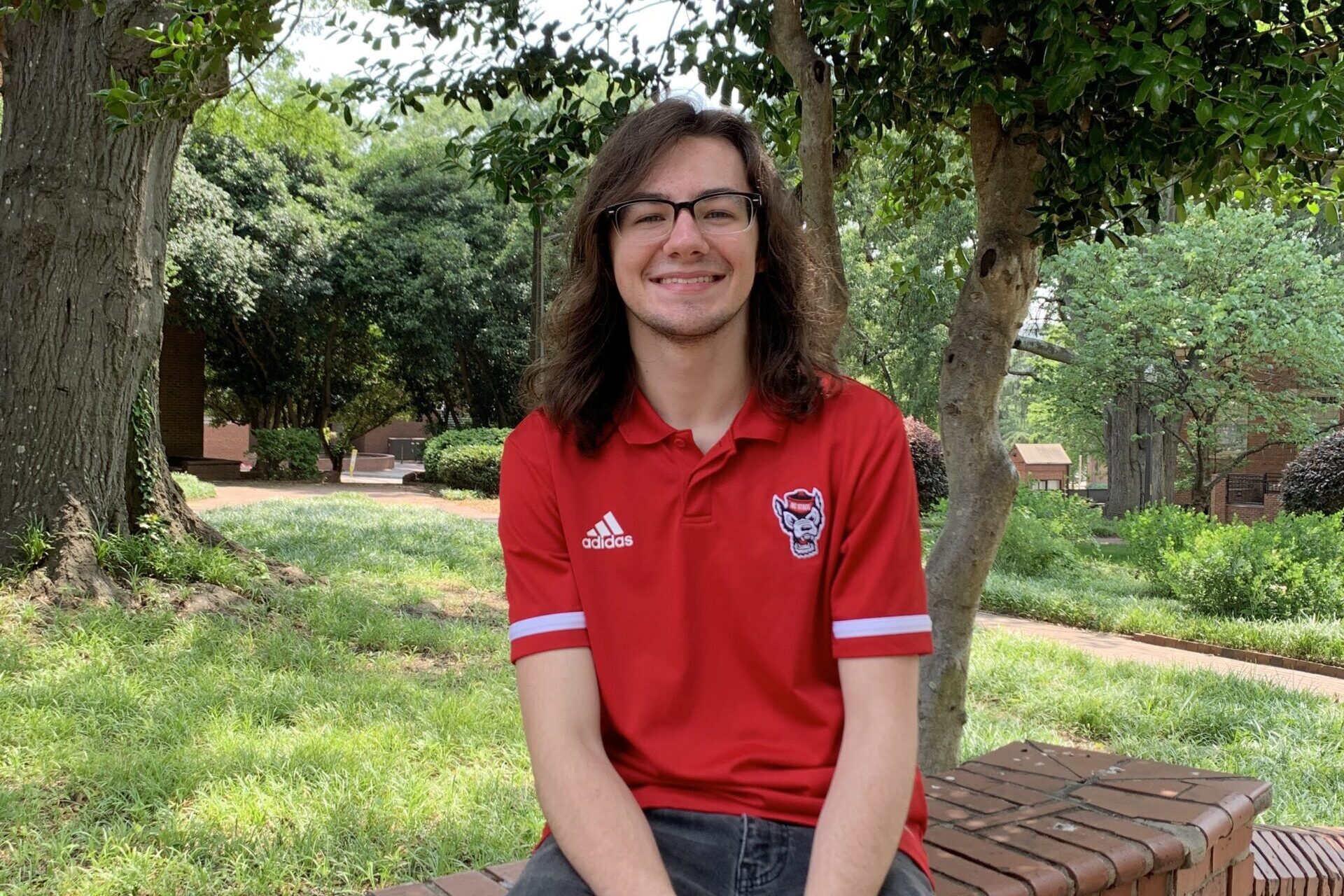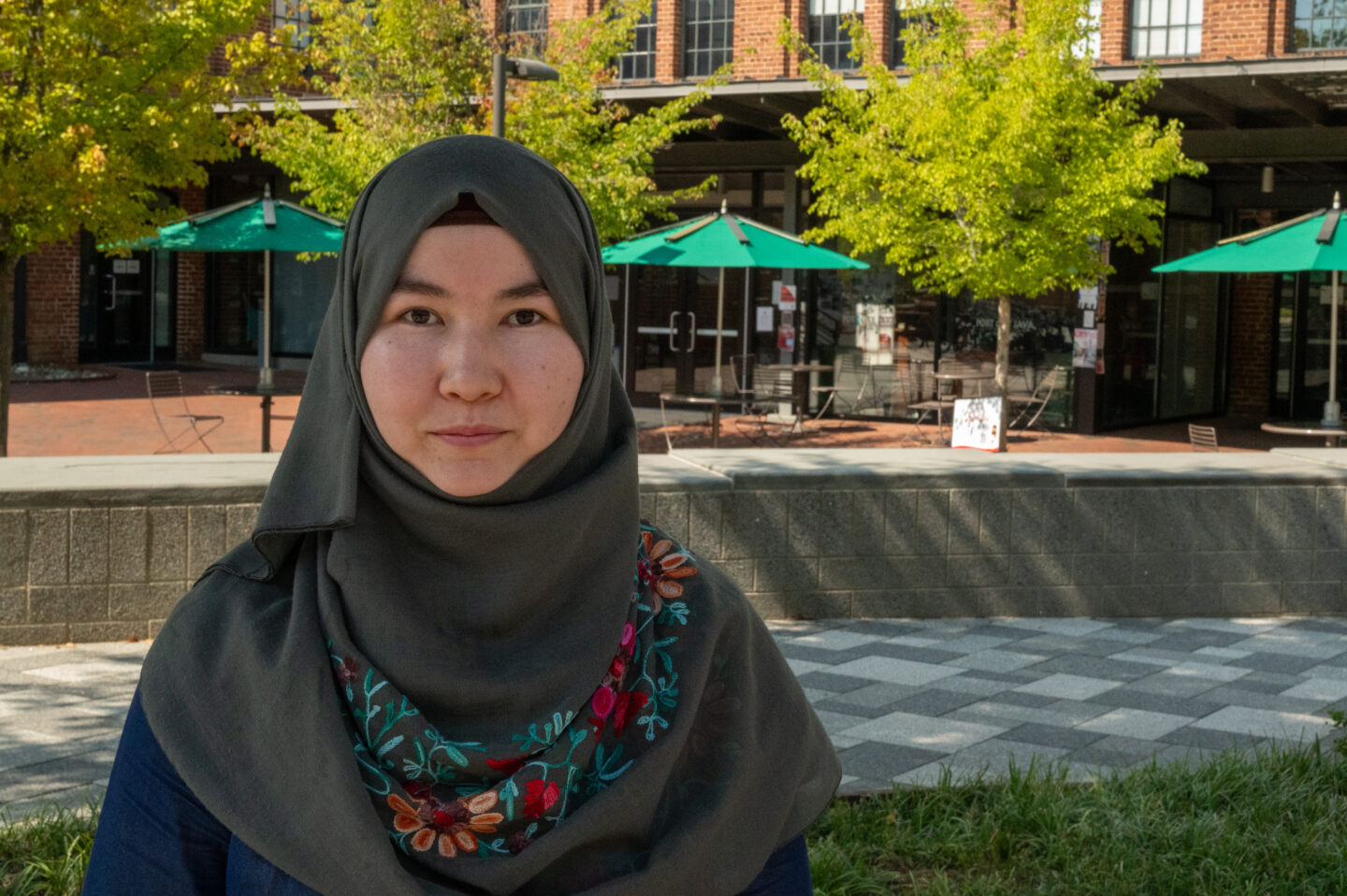Gregory Capps ’24 is a senior majoring in Aerospace Engineering who is eager to continue to grow his knowledge through his summer internship with BETA Technologies. Read on to learn more about Gregory’s discovery of his passion and how it relates to his current work with his internship.
- Tell me about yourself and how you ended up in Goodnight.
I am a rising senior studying Aerospace Engineering with a minor in English. My path to Goodnight started in elementary school when my friends and I would make paper airplanes to throw during recess–I loved impressing my friends with increasingly elaborate paper planes and it quickly became an obsession of mine. I fell in love with all things aviation and, by fifth grade, I had firmly decided I would attend NC State University to become an aerospace engineer. Coming from a lower-income background, I knew that I would need a substantial scholarship to attend college; when I heard about the Goodnight Scholars Program on a tour of NC State with my high school, it sounded like the perfect fit for me! I remember how increasingly surreal it felt being invited to apply, attending interview day, and finally being accepted into Goodnight as the dream I had held for half of my life became my reality. With the programming, trips, leadership positions, and community that Goodnight has provided me, I can’t help but think that my reality is even better than I dreamt.
- Describe your internship and the company you work for.
This summer, I will be interning with BETA Technologies, an aerospace company that wants to revolutionize air travel. BETA is focused on developing an eVTOL (electric Vertical Take-Off and Landing) aircraft–an airplane that is electric and can also hover like a helicopter. BETA thinks airplanes can be used more widely to make our lives better, letting us and our packages travel faster and farther; however, most planes today use fossil fuels that are very harmful to the environment. To let air travel grow without hurting the planet, BETA is committed to using electric power instead of these fossil fuels. By designing aircraft that can hover like a helicopter, BETA’s aircraft will not need a runway to take off or land either, opening the door for use among civilians or as a hospital air transport. In my position, I will run simulations of BETA’s aircraft and analyze the results to make sure that the plane behaves correctly when a pilot tries to control it. Pilots need simulations of new aircraft to safely learn how to fly the real thing, so these simulations must be accurate to the real plane and the weather conditions that it could fly in. Also, these simulations can let engineers know if something about the plane might be unsafe or not work as intended, letting us fix the problem without risking lives.
- How do you combine your interest in engineering with sustainable and environmentally sound practices?
Aerospace engineering tends to be one of the least environmentally-friendly disciplines, but I have found several ways to combine my passion for aviation with my desire to protect the environment. For example, I participated in a study abroad experience in Namibia last fall where I and several other students researched how small, battery-powered drones can help track animal populations and save endangered species from poachers. My upcoming internship with BETA highlights another way that I want to help the planet with my interest, as BETA’s dedication to creating effective electric airplanes hopes to pave the way to a carbon-neutral aviation industry. Since aviation is responsible for 2% of all carbon dioxide emissions, these efforts have the potential to make a huge difference that I am grateful to be a part of.
- How do you plan to make the most out of your internship?
To me, making the most of my internship encompasses both my benefit to the company’s mission and the benefit of the company to my professional development. I plan to help BETA as much as I can by using my familiarity with other VTOL aircraft, such as the V-22 Osprey that I worked with throughout my previous internship. My previous internship also taught me the importance of asking questions and taking notes on the job–it greatly eases the learning curve brought about by the slough of relevant acronyms and technical concepts not taught in class. I plan to use the skills that I gained last semester from my coursework as well, particularly my classes on control systems and flight stability. These courses piqued my interest in the type of work that I will conduct in my internship and were ultimately what led to me applying to the position. I believe that my passion for both my role and the company’s mission will lead to me performing well and making important connections with my superiors. Having a strong rapport with my coworkers can streamline teamwork and help me secure a permanent position with the company upon graduation.
- Categories:



